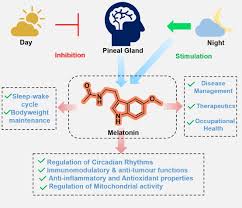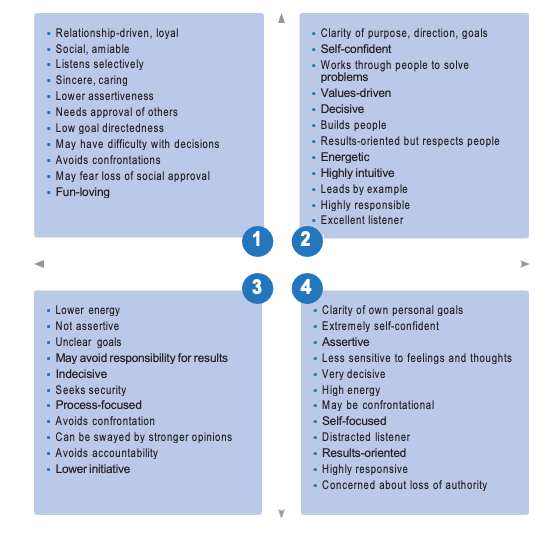Circadian rhythms are the internal biological clocks that regulate various physiological processes in living organisms, including humans. These rhythms follow a roughly 24-hour cycle and are influenced by external cues such as light and temperature. The term “circadian” comes from the Latin words “circa” meaning “around” and “dies” meaning “day,” highlighting the daily nature of these rhythms.
One of the most well-known circadian rhythms is the sleep-wake cycle. Our bodies have evolved to be active during daylight hours and rest during the night. This cycle is controlled by a part of the brain called the suprachiasmatic nucleus, which responds to light signals received through the eyes. Exposure to light in the morning helps synchronize our internal clock with the external day-night cycle, promoting wakefulness and alertness during the day.
In addition to regulating sleep patterns, circadian rhythms also influence other bodily functions such as hormone production, metabolism, body temperature, and cognitive performance. Disruptions to these rhythms, such as those caused by shift work, jet lag, or irregular sleep schedules, can have negative effects on health and well-being.
Research has shown that maintaining a consistent daily routine that aligns with our natural circadian rhythms can have numerous benefits. This includes improved sleep quality, enhanced mood and cognitive function, better metabolic health, and a reduced risk of chronic diseases such as obesity, diabetes, and cardiovascular disorders.
Strategies for optimizing circadian rhythms include exposure to natural light during the day, especially in the morning; establishing regular sleep-wake times; avoiding bright screens before bedtime; and creating a conducive sleep environment that is cool, dark, and quiet.
By understanding and respecting our circadian rhythms, we can better support our overall health and well-being. Whether it’s ensuring we get enough restful sleep or aligning our daily activities with our internal clock, paying attention to these biological cycles can lead to a healthier and more balanced life.
5 Tips to Optimize Your Circadian Rhythm for Better Sleep
- Maintain a consistent sleep schedule by going to bed and waking up at the same time every day.
- Expose yourself to natural light during the day to help regulate your circadian rhythm.
- Limit exposure to bright screens, especially before bedtime, as it can disrupt your body’s internal clock.
- Avoid consuming caffeine and heavy meals close to bedtime as they can interfere with your sleep-wake cycle.
- Establish a relaxing bedtime routine to signal your body that it’s time to wind down and prepare for sleep.
Maintain a consistent sleep schedule by going to bed and waking up at the same time every day.
Maintaining a consistent sleep schedule by going to bed and waking up at the same time every day is a crucial tip for optimizing our circadian rhythms. By aligning our sleep-wake cycle with our body’s natural internal clock, we can promote better quality sleep and overall well-being. Consistency helps regulate hormone production, improve cognitive function, and enhance our mood throughout the day. Establishing a regular bedtime routine can signal to our brain that it’s time to wind down and prepare for rest, making it easier to fall asleep and wake up feeling refreshed and alert.
Expose yourself to natural light during the day to help regulate your circadian rhythm.
Exposing yourself to natural light during the day is a simple yet effective way to regulate your circadian rhythm. Natural light, especially in the morning, helps signal to your body that it is daytime, promoting wakefulness and alertness. This exposure to light can help synchronize your internal clock with the external day-night cycle, making it easier to fall asleep at night and wake up feeling refreshed in the morning. By incorporating this practice into your daily routine, you can support a healthy sleep-wake cycle and improve your overall well-being.
Limit exposure to bright screens, especially before bedtime, as it can disrupt your body’s internal clock.
Exposure to bright screens, particularly before bedtime, can disrupt your body’s internal clock and negatively impact your circadian rhythms. The blue light emitted by electronic devices like smartphones, tablets, and computers can suppress the production of the sleep hormone melatonin, making it harder to fall asleep and compromising the quality of your rest. To support healthy circadian rhythms and promote better sleep, it’s advisable to limit screen time in the evening hours and create a relaxing bedtime routine that doesn’t involve bright screens.
Avoid consuming caffeine and heavy meals close to bedtime as they can interfere with your sleep-wake cycle.
Consuming caffeine and heavy meals close to bedtime can disrupt your circadian rhythms and interfere with your sleep-wake cycle. Caffeine is a stimulant that can keep you awake by blocking the sleep-inducing effects of adenosine in the brain. Similarly, heavy meals close to bedtime can lead to indigestion and discomfort, making it harder to fall asleep and stay asleep throughout the night. By avoiding these substances and foods before bed, you can support a more restful night’s sleep and help maintain a healthy circadian rhythm.
Establish a relaxing bedtime routine to signal your body that it’s time to wind down and prepare for sleep.
Establishing a relaxing bedtime routine is a helpful tip for optimizing your circadian rhythms and promoting better sleep quality. By engaging in calming activities such as reading, taking a warm bath, or practicing mindfulness before bed, you signal to your body that it’s time to wind down and prepare for sleep. This routine helps cue your internal clock that it’s transitioning from wakefulness to rest, making it easier to fall asleep and stay asleep throughout the night. Creating a soothing bedtime ritual can contribute to a more restful and rejuvenating sleep experience, setting the stage for improved overall well-being.



